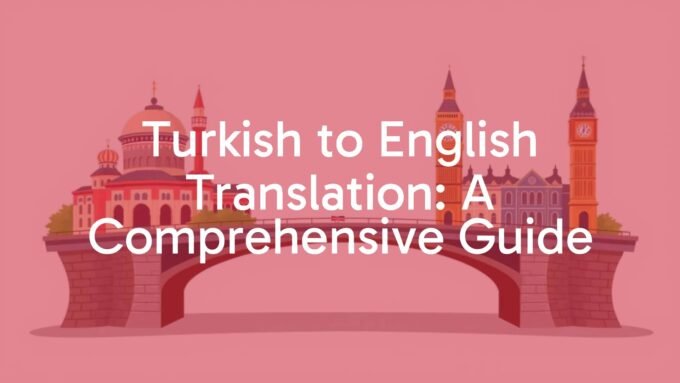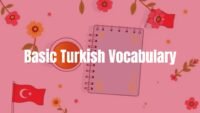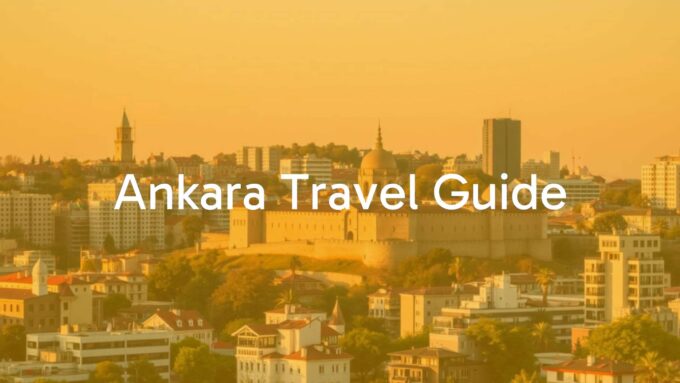Many travelers and language fans ask the same thing: “how to say in Turkish?” This simple question opens a path to learning a clear and musical language. Whether you plan to relax on the Turquoise Coast, stroll through Istanbul’s busy bazaars, or want to talk with Turkish-speaking friends, learning how to say things in Turkish helps you connect. It’s about words, but also about making friends and showing respect for a warm, welcoming culture.
This guide is more than a list of phrases. We’ll look at how to turn English ideas into natural Turkish, point out common mistakes, and share useful tips. From basic greetings to key phrases for getting around a city, you’ll get the tools you need. Let’s get started and enjoy saying what you mean in Turkish.

What Does ‘How to Say in Turkish’ Mean?
“How to say in Turkish” means finding the right Turkish words for what you want to say in English. It’s not only about the direct meaning, but also the situation and culture. To do this well, you’ll need some basics of Turkish grammar, pronunciation, and common sayings, which can be quite different from English.
For example, asking “Türkçe’de bu nasıl denir?” (How do you say this in Turkish?) while pointing at an object is a great start. The parts are “in Turkish” (Türkçe’de), “how” (nasıl), and “is said” (denir). Turkish often puts the verb at the end and uses suffixes to add meaning. This simple question helps you pick up new words on the spot and chat with locals.
Why Learn Turkish Phrases and Translations?
Learning even a few Turkish phrases helps a lot, especially when visiting Turkey. Many people in tourist areas speak some English, but trying Turkish is seen as polite and kind. It shows respect and can really improve your trip, often leading to warmer chats and friendly smiles.
Outside of travel, Turkish can boost your general knowledge and even your happiness. Many people find it a beautiful, melodic language; some even call it the happiest language. Learning a new language helps your brain form new links. With millions of Turkish speakers across Europe and beyond, a few phrases can help you build new friendships and feel closer to the culture.
How Are English Words and Phrases Translated to Turkish?
Translating English to Turkish is not always word for word. Turkish is an agglutinative language, which means it adds suffixes to words to show grammar and meaning that English often shows with separate words. One Turkish word can carry the meaning of a whole English phrase, so direct translation can be tricky.
The Turkish alphabet is mostly phonetic, which helps with reading. But vowel harmony and special letters (like Ç for “ch” and Ş for “sh”) take practice. Learning these patterns is the key to clear, natural Turkish. Think of it like putting together a puzzle: roots and suffixes fit together to make full meanings.

Word-for-Word vs. Contextual Translation
One big choice is between direct word-for-word translation and a meaning-based translation. Simple nouns and verbs often match well, but full sentences and idioms usually don’t. Word-for-word results can sound odd. A meaning-based approach fits better and sounds natural.
For example, “bread” is “ekmek.” But “happy birthday” is not a direct copy. In Turkish, people say “Mutlu yıllar,” which is closer to “Happy years.” Learn common phrases as whole units. Building them piece by piece often causes confusion.
Common Pitfalls When Translating to Turkish
There are a few common traps. Formal vs. informal speech matters a lot. Turkish uses different pronouns and verb forms depending on who you are talking to. Using the wrong level can sound rude or too familiar.
Vowel harmony is another big challenge. Vowels in a word should “match,” which affects suffix choices and can make pronunciation hard at first. Also, Turkish uses set phrases for social moments. These set expressions matter because a literal English-to-Turkish switch may miss the tone. For example, to someone who is ill, people say “Geçmiş olsun” (May it be in the past), which carries more care than just “Get well soon.”
Basic Turkish Phrases for Everyday Use
Knowing a few basic phrases can make your time in Turkey much better. These are your tools for daily life, from ordering tea to asking for directions.
Even if your accent is not perfect, people will notice the effort and respond kindly. Turks are generally friendly and helpful, and trying their language often brings warm reactions. These phrases are the building blocks of good communication.
Greetings and Introductions
Starting with a proper greeting is important in any culture, and Turkish is no different.
- Hello: Merhaba (Mur-ha-bah). Informal: Selam! Traditional: Selamün aleyküm; reply: Ve aleyküm selam.
- Good Morning: Günaydın (Goo-nay-duhn).
- Good Afternoon: Tünaydın.
- Good Evening: İyi akşamlar (EE ak-sham-lar).
- Good Night: İyi geceler! (EE geh-jeh-ler).
- How are you?: Nasıl sın? (Nah-suhl-suhn), formal: Nasıl sınız? (Nah-suhl-suh-nuhz). Reply: İyiyim, sen nasılsın? (I’m well, how are you?).
- My name is…: Benim adım… (Beh-nim ah-duhm…).
- What’s your name?: Adınız nedir? (Ah-duh-nuhz neh-dir?).
- Pleased to meet you: Tanıştığıma memnun oldum.
- Welcome: Hoş geldiniz! (Hosh gel-dee-niz!). Reply: Hoş bulduk.
- Goodbye: You leaving: Hoşçakalın (Hosh-cha-kah-luhn). They leaving: Güle güle (Goo-leh goo-leh).
- See you later/soon: Görüşürüz (Gor-oo-shoo-rooz) or Yakında görüşürüz.

Common Questions
Asking questions is a big part of getting the info you need in a new place.
- What?: Ne? (Neh)
- How?: Nasıl? (Nah-suhl)
- Who?: Kim? (Keem)
- When?: Ne zaman?
- At what time?: Kaçta? (“Tren kaçta kalkıyor?” – What time does the train leave?)
- Where?: Nerede? (Neh-reh-deh). Put the item first: “Lavabo nerede?” (Where is the toilet?).
- Why?: Neden?, Niye?, Niçin?
- How much?: Ne kadar? (“O halı ne kadar?” – How much is that rug?)
- Do you have…?: Sende … var mı?
- How do I get there?: Oraya nasıl giderim?
Polite Expressions You’ll Use Often
Politeness goes a long way in Turkey. These phrases help you keep talks smooth and respectful.
- Please: Lütfen (Loot-fen).
- Excuse me / I’m sorry: Pardon or Özür dilerim. Afedersiniz! works for “Excuse me!”.
- Thank you: We cover this more below, but use Teşekkürler or the more formal Teşekkür ederim.
- You’re welcome: Bir şey değil or Rica ederim.
- Don’t worry!: Üzülme!
- Enjoy your meal: Afiyet olsun.
- Health to your hands: Elinize sağlık. (To the cook.)
- Take care of yourself: Kendine iyi bak.
- Congratulations: Tebrik ederim.
How to Say Yes, No, and Okay in Turkish
These short words run many talks. Turkish has direct words and also body language that adds extra meaning. Knowing both helps you avoid mix-ups and makes chats smoother.
Words matter, but so does tone and sometimes a nod or a sound. Turkish speech uses many non-verbal cues, and “yes,” “no,” and “okay” show this well.
Saying ‘Yes’ in Turkish
The basic word for “yes” is Evet (Eh-vet). Use it to agree or answer a yes/no question. “Sen öğrenci misin?” – “Evet.”
You can also say Tabi ki for “sure” or “of course.” If someone asks, “Bir bardak su alabilir miyim?” you might reply, “Tabi ki.”
Saying ‘No’ in Turkish
The main word for “no” is Hayır (Ha-yur). “Sen öğrenci misin?” – “Hayır.”
Other ways: Olmaz (I won’t accept / that won’t do) when turning down an offer or idea. Yok means “there isn’t/no” and is common in casual refusals, like “Yok, sağ ol” (No, thanks).
Different Ways to Say ‘Okay’
The most common word is Tamam. Use it to accept or confirm: “Hadi çay içelim.” – “Tamam.”
Olur often works like “Tamam,” especially for accepting a plan: “Eve gidelim mi?” – “Olur.” Peki can mean “okay” too, but sometimes shows you accept with a bit of reluctance: “Peki.”
Quick Reference: Yes, No, Okay
| English | Turkish | Use/Note |
|---|---|---|
| Yes | Evet | Plain agreement |
| Sure/Of course | Tabi ki | Friendly, positive |
| No | Hayır | Plain refusal |
| No (won’t do) | Olmaz | Rejecting an offer or idea |
| No (casual) | Yok | Common in speech; “No, thanks” |
| Okay | Tamam | Accept/confirm |
| Okay (works) | Olur | Accept a plan or offer |
| Alright (reluctant) | Peki | Agreement with some hesitation |
Cultural Tips for Using Yes and No
People in Turkey often make a quick “tsk” sound with a slight upward head tilt to mean “no.” It’s fast and clear in casual talks. Keep this for informal settings. In formal moments, use spoken words like “Hayır” or “Olmaz” to stay polite.

How to Say Thank You in Turkish
Saying thanks is a key part of polite speech, and Turkish has several forms, from casual to formal. People are helpful and friendly, so you will likely use these often.
Using these phrases shows good manners and helps build warmer connections. Thanking someone in their own language feels good for both sides.
Formal and Informal Thank You Phrases
The most flexible form is Teşekkür ederim (Tesh-eh-kur eh-deh-rim). To say “thank you very much,” add çok: Çok teşekkür ederim. For “we thank you,” say Teşekkür ederiz.
Short and common: Teşekkürler (“thanks”). Very casual: Sağ ol (Sah ol), which literally means “stay healthy.” Among close friends, you may hear Canın sağ olsun (May your soul be healthy). Very informal: Eyvallah, often between male friends, meaning “thanks” or a casual “alright, thanks.”
How to Respond When Thanked in Turkish
The most common reply is Rica ederim (You’re welcome / My pleasure).
Casual replies: Bir şey değil (It’s nothing), Önemli değil (It’s not important). To show you enjoyed helping: Benim için zevkti (It was my pleasure). If someone says “Sağ ol,” a natural reply is Sen de sağ ol (You too). In formal situations, if someone says “Çok naziksiniz,” you can say Estağfurullah (You flatter me) or Ben teşekkür ederim (Thank you).
Saying Thank You in Specific Contexts
Use these to be clear and polite in different situations:
- Thank you for your kind words: Nazik sözleriniz için teşekkürler.
- Thank you for coming today: Bugün geldiğiniz için teşekkür ederim.
- Thank you for your interest: İlginiz için teşekkür ederim.
- Thank you for your help: Yardımınız için teşekkür ederim.
- Thank you for your time: Zamanınız için teşekkür ederim.
- Thank you for your hospitality: Misafirperverliğiniz için teşekkürler.
- Thank you for the invitation: Davetiniz için teşekkürler.
- Thank you for your understanding: Anlayışınız için teşekkür ederim.
- Thank you for your patience: Sabrınız için teşekkür ederim.
- Thank you for the gift: Hediye için teşekkür ederim.
To refuse politely while thanking someone, say Hayır, teşekkürler (No, thank you). Softer: Teşekkür ederim, istemiyorum (Thank you, I don’t want it). Casual: Sağ olun, gerek yok (Thanks, it’s not necessary). When turning down help kindly: Zahmet etmeyin (Don’t trouble yourself).
Useful Turkish Phrases for Travelers
Traveling to a new country is exciting, and a few local phrases can turn possible problems into friendly moments. In Turkey, where people value hospitality, a small effort in Turkish often brings smiles and support.
Use these lines to handle common travel moments, from finding your way to ordering a meal.
Asking for Directions and Help
Finding your way in a new city can be hard. These phrases help you ask clearly:
- Excuse me / Can you look here?: Bakar mısın? (To get attention). Also Affedersin or Afedersiniz for “Excuse me.”
- Can you help me?: Bana yardım eder misin?
- Where is the…?: Put the place first, then nerede?
- Where is the metro?: Metro nerede?
- Where is the restaurant?: Restoran nerede?
- How do I get to the train station?: Tren garına nasıl giderim?
- Help! / Emergency!: İmdat! (Use only in real emergencies.)
- Where are the police?: Polis nerede?
- Where is the Consulate?: Konsolosluk nerede?
Ordering Food and Making Purchases
Turkish food is a highlight for many visitors. These help with ordering and paying:
- May I have the menu?: Menüyü alabilir miyim?
- Can I please have…?: Lütfen … alabilir miyim?
- Bill, please: Hesap lütfen (Heh-sap loot-fen).
- One beer, please: Bir bira, lütfen.
- This is delicious: Lezzetli.
- How much is it?: Bu ne kadar?
- Water: Su (Sue).
- Tea: Çay (Chai).
- Apple tea: Elma çayı (El-ma chai-uh).
- Chicken: Tavuk (Tah-vook).
- Fish: Balık (Bah-luk).
- Lamb: Kuzu (Koo-zoo).
- Beef steak: Biftek (Biff-teck).
- Minced meat balls: Köfte (Kof-teh).
- Mixed starters: Meze (Meh-zeh).
- Turkish pizza: Pide (Pee-deh).
- Casserole: Güveç (Goo-vech).
- Sugar: Şeker (Sheh-ker).
- Salt: Tuz (Tooz).
- Wine: Şarap (Sha-rahp).
- Bread: Ekmek (Eck-meck).
- Soup: Çorba (Chor-bah).
- Hot: Sıcak (Sih-jahk).
- Cold: Soğuk (So-ook).
- Ice cream: Dondurma (Don-door-mah).

Some menus outside big tourist spots may be only in Turkish, so these food words help a lot.
Emergencies and Requests
We hope nothing goes wrong, but it’s smart to be ready. In an emergency, these words matter:
- Help me, please: Yardım edin, lütfen.
- One ticket to/Two tickets to: Tek bilet/İki bilet.
For everyday needs, “Lütfen … alabilir miyim?” (Can I please have…?) is very handy. People are usually happy to help, and your effort in Turkish makes it more likely you’ll get the help you need.
Frequently Asked Questions About Turkish Translations
As you learn more Turkish, some common questions come up, especially about names and casual speech. Clearing these up will make your talks smoother and help you read the culture better.
These answers will help you feel more confident as you move ahead.
How to Say Names or Personal Words in Turkish?
For names, Turkish usually keeps the original sound. If your name is “John,” you can say “Benim adım John.” For polite address, add Bey (Mr.) after a man’s name and Hanım (Ms./Mrs.) after a woman’s name: “Ahmet Bey,” “Ayşe Hanım.” This is an important part of polite speech.
For other personal words, use the main question: Türkçe’de [English word] nasıl denir? (How do you say [English word] in Turkish?). For example, “Türkçe’de ‘my favorite book’ nasıl denir?” You can learn the exact words right from locals.
Are There Turkish Slang Words to Know?
Yes. Like any lively language, Turkish has lots of slang used in casual talks. Learn formal forms first, but knowing a little slang helps you follow everyday speech and sound natural with friends. We mentioned Eyvallah as a very informal “thanks,” often among men. Another friendly “thanks” is Sağolasın.
Slang depends on the situation and the people. It’s usually best to listen to how locals use these words before you try them. The “tsk” sound for “no,” for example, fits only informal chats. Getting used to these casual forms will help you handle social moments more smoothly.
















Leave a comment